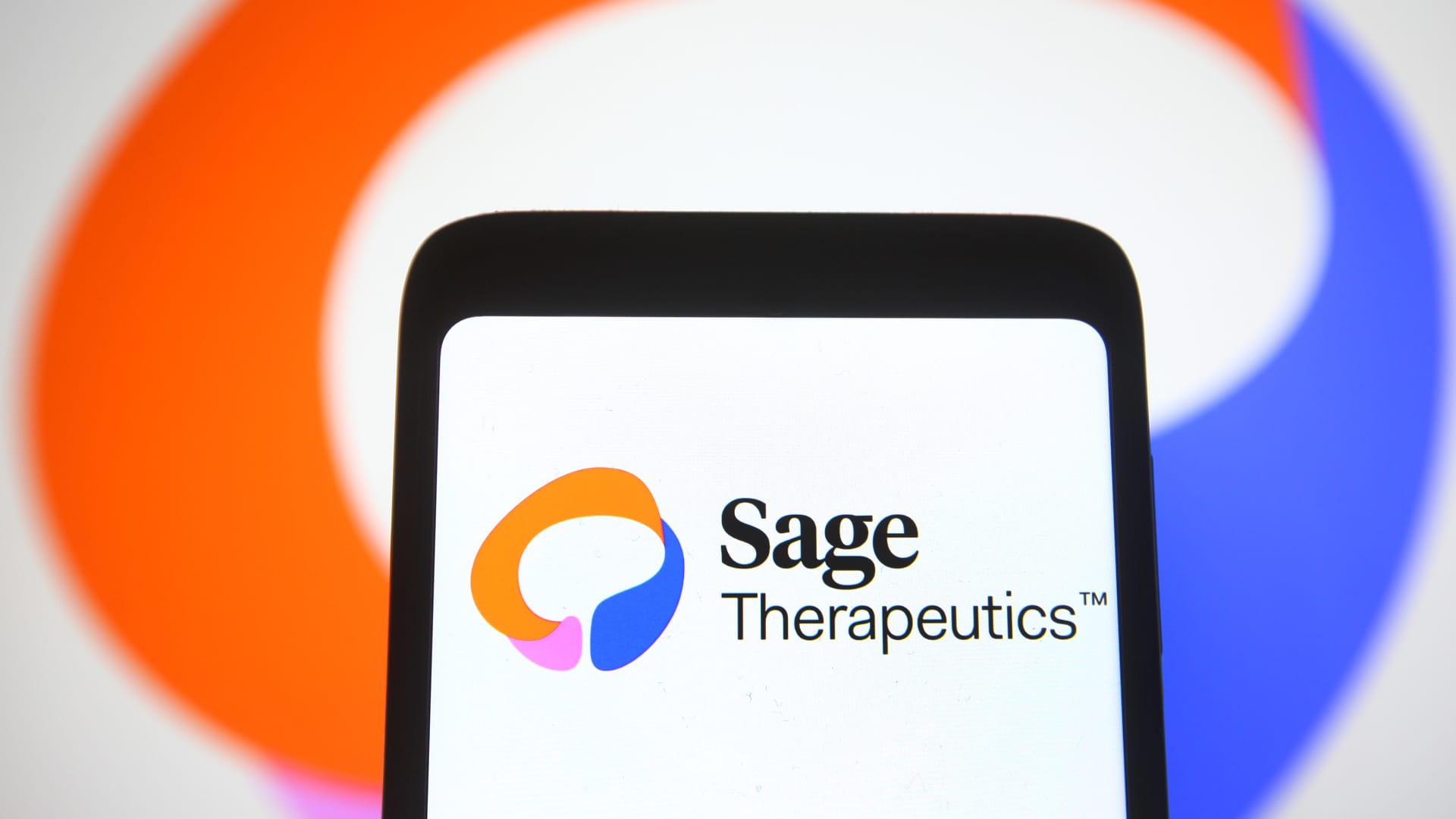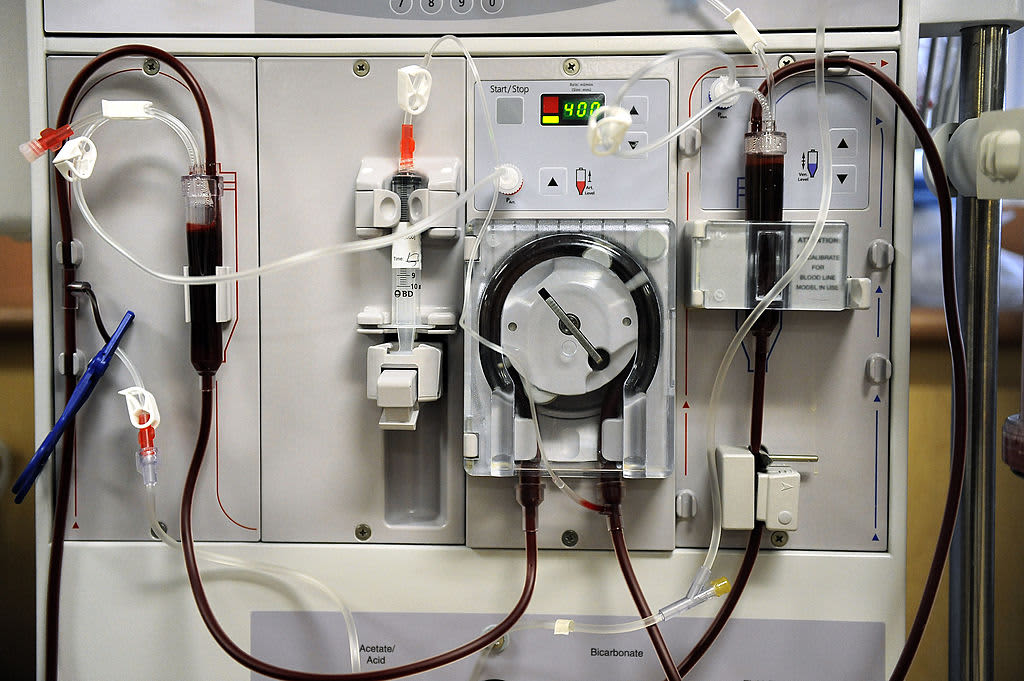
In this photo illustration, the Sage Therapeutics logo of a biopharmaceutical company seen on a smartphone and on a pc screen.
Pavlo Gonchar | SOPA Images | Lightrocket | Getty Images
Shares of Sage Therapeutics fell more than 50% on Monday after the Food and Drug Administration approved the biotech company’s oral drug zuranolone for postpartum depression, but not for major depressive disorder, a bigger potential market.
Shares of Biogen, which jointly developed the treatment with Sage, were roughly flat.
The FDA’s approval late Friday made Zuranolone the first oral treatment for postpartum depression, a common complication that affects one in eight women during and after pregnancy and hinders their ability to function normally.
The two companies also applied for approval of Zuranolone for major depressive disorder, also known as clinical depression. But the FDA said they did not provide enough evidence of the drug’s effectiveness in treating the condition, which affects a much larger population of patients.
Clinical depression affects approximately 17.3 million American adults, or about 7% of the people ages 18 and older, in a given year.
Zuranolone had the potential for $1 billion in peak sales, compared with $250 million to $500 million for postpartum depression, Jefferies analyst Michael Yee said in a research note Sunday.
He said clinical depression “was really the big upside driver here” for the companies, while postpartum depression is “much smaller and may not be hugely profitable.”
Wells Fargo analyst Mohit Bansal also said the clinical depression market contributed to 85% of the firm’s future sales estimates for Zuranolone. But “there could be a silver lining as the pricing power may be higher” in postpartum depression, he wrote in a Sunday research note.
Sage and Biogen have not disclosed Zuranolone’s price for postpartum depression treatment.
The FDA said additional studies might be required to support the drug’s approval for clinical depression.
But Yee noted that Biogen is unlikely to “quickly move forward on another late-stage study” on the drug for clinical depression since the company is focusing on saving costs and recently announced layoffs.









